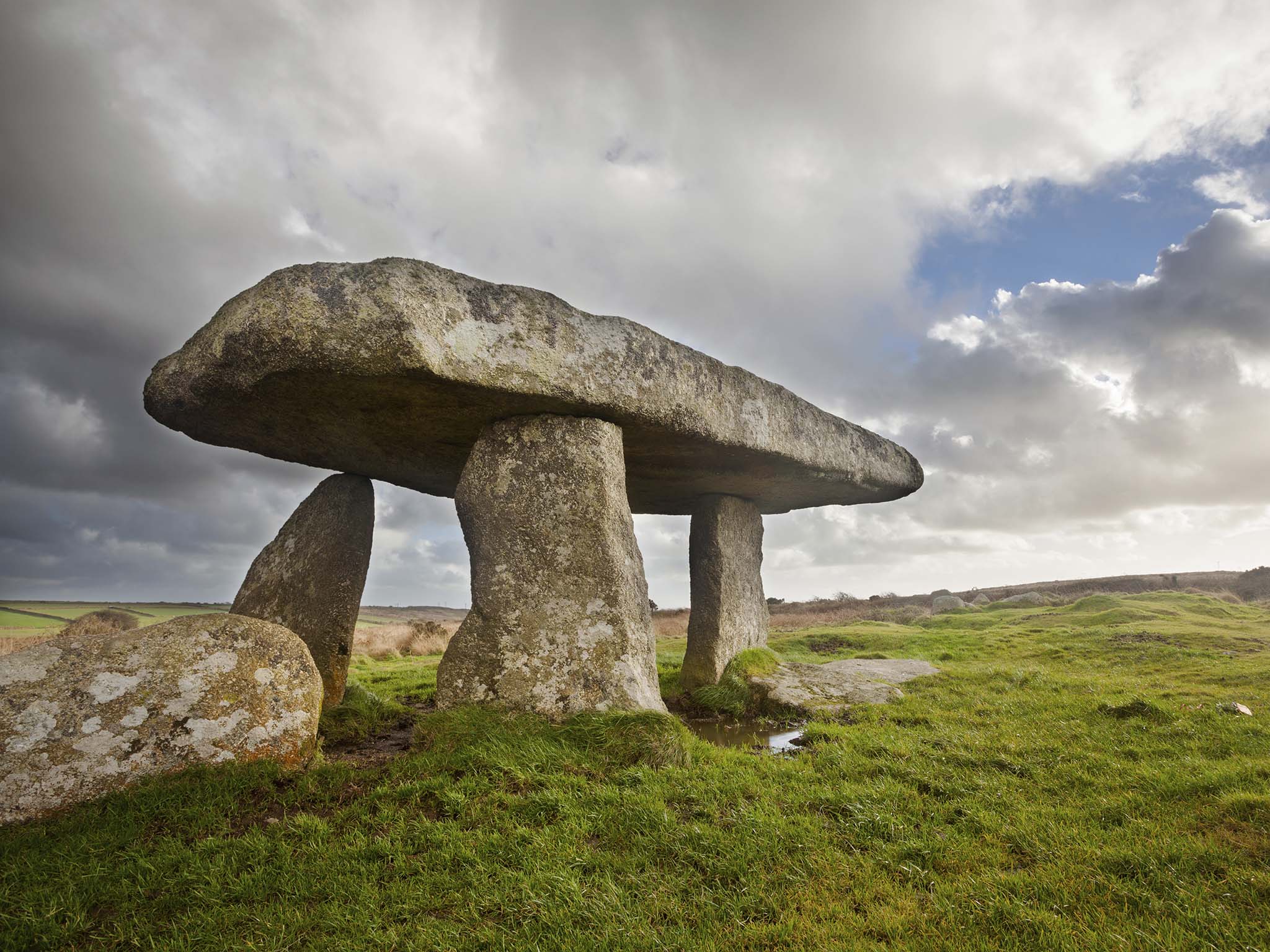Rising Ground: A Search for the Spirit of Place by Phillip Marsden, book review: A wonderful travelogue through Cornwall and beyond
Guaranteed to fill the windows of Cornish bookshops, it is a superb and educative work which should be read everywhere

What is the spirit of place? Something in the way ground lies, its minerals, ecology and human history?
Philip Marsden is known as a travel writer but here we find him moving with his family into a ramshackle farmhouse on the Fal river and ruminating on space and place. Focus on space, he writes, has given us homogenous housing, duplicated shopping malls – “the abiding sameness that characterises contemporary life”.
Rising Ground is a fragmented walk through Cornwall, on the trail of the mythology of place. Cornwall is thick with Neolithic monuments, sacred tors and ritualised stone alignments. Piled on them are Arthurian myths attending Tintagel (derived from Geoffrey of Monmouth’s 12th-century tales, though Cornish kings ruled Tintagel eight centuries earlier, leaving hoards of pottery linking Cornwall to Byzantium), the upheavals of the mineral industries and the myth-making of the St Ives artists.
“Site-based belief can be as tenacious as a limpet,” Marsden writes of the failure of the Reformation’s zealots to purge Cornwall of its paganism and pilgrimage. His is a project of daunting scope. “There have been times writing this book, trying to reach the meaning of a place across the ages, when I have felt a shadow across my desk.”
The early chapters tackle prehistory; much of Cornwall was sacred to our ancestors, whose horizon-wide architecture linked natural and human constructions. Their beliefs are speculation. Neolithic people, Marsden concludes, arranged their world in order to supply answers to “the same questions that tease us now: what law, what force, what patterns exist in the vastness of space?”
The book becomes an elliptical tour with a polymathic guide, equally entertaining and enlightening whether plunging through hedges, excavating archives or attending a pagan night in Penzance. The excellent pagans are mostly concerned with picking up litter and clearing drainage ditches, though their beliefs thrive in the wider population. At Madron Well Marsden discovers a living sacred site, its trees hung with ribbons and wishes.
We visit Glastonbury with John Leland, Henry VIII’s antiquary, who wrote to the monarch saying he was “totally inflamed with a love to see thoroughly all those partes of your ample realme,” and who burnt himself out in the process. China clay is explored with William Cookworthy, the only man ever to make true porcelain in Britain. We see the clayscape through the blind eyes of the poet Jack Clemo, a man who learned, as perhaps we must, to take pleasure in devastation: “Praise God, the earth is maimed,” he wrote. Through the 18th-century antiquarian John Whitaker and the works of John Henderson, phenomenal Cornish historian, Marsden tells stories of men who “promoted that diligent attention to the world that makes life worth living.”
Through people, records and esculent description of the country he crosses, Marsden triumphs in an enterprise described by the artist Peter Lanyon, who wrote: “Landscape...is the proper place to find our deepest meanings.”
Marsden’s references are glittering, from Ethiopia to Mongolia, and by the time he reaches the Scilly Isles the reader has a wonderful sense of how the bass notes of the past sound through soil and site into language and the living. In a reaffirmed United Kingdom this is a timely volume, describing in beautiful prose the opulence of our natural and human fabric. Guaranteed to fill the windows of Cornish bookshops, it is a superb and educative work which should be read everywhere.
Subscribe to Independent Premium to bookmark this article
Want to bookmark your favourite articles and stories to read or reference later? Start your Independent Premium subscription today.

Join our commenting forum
Join thought-provoking conversations, follow other Independent readers and see their replies